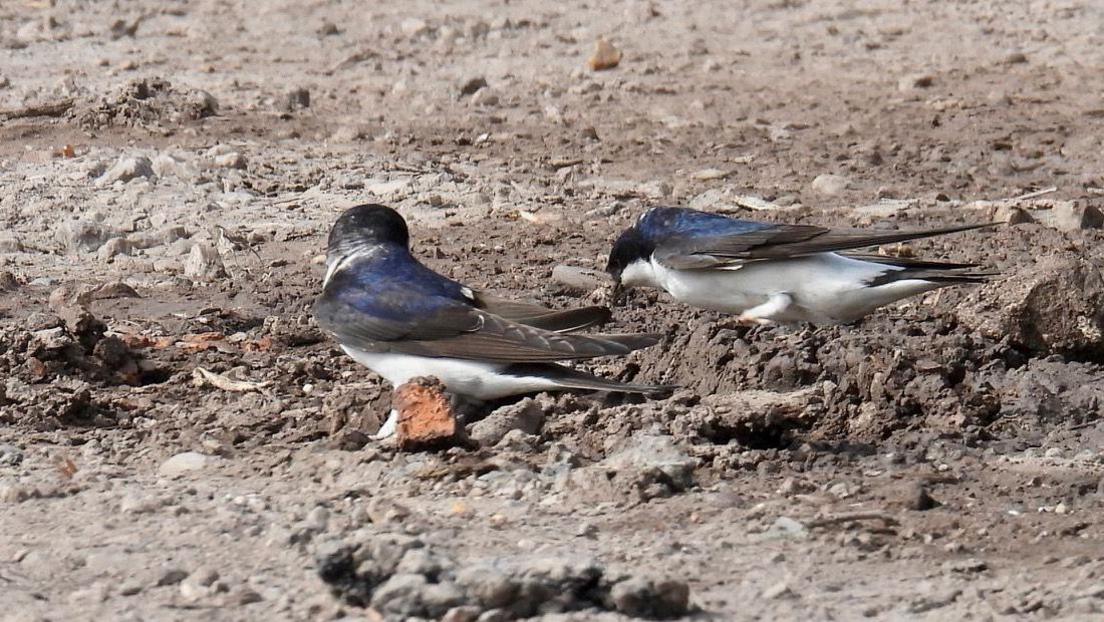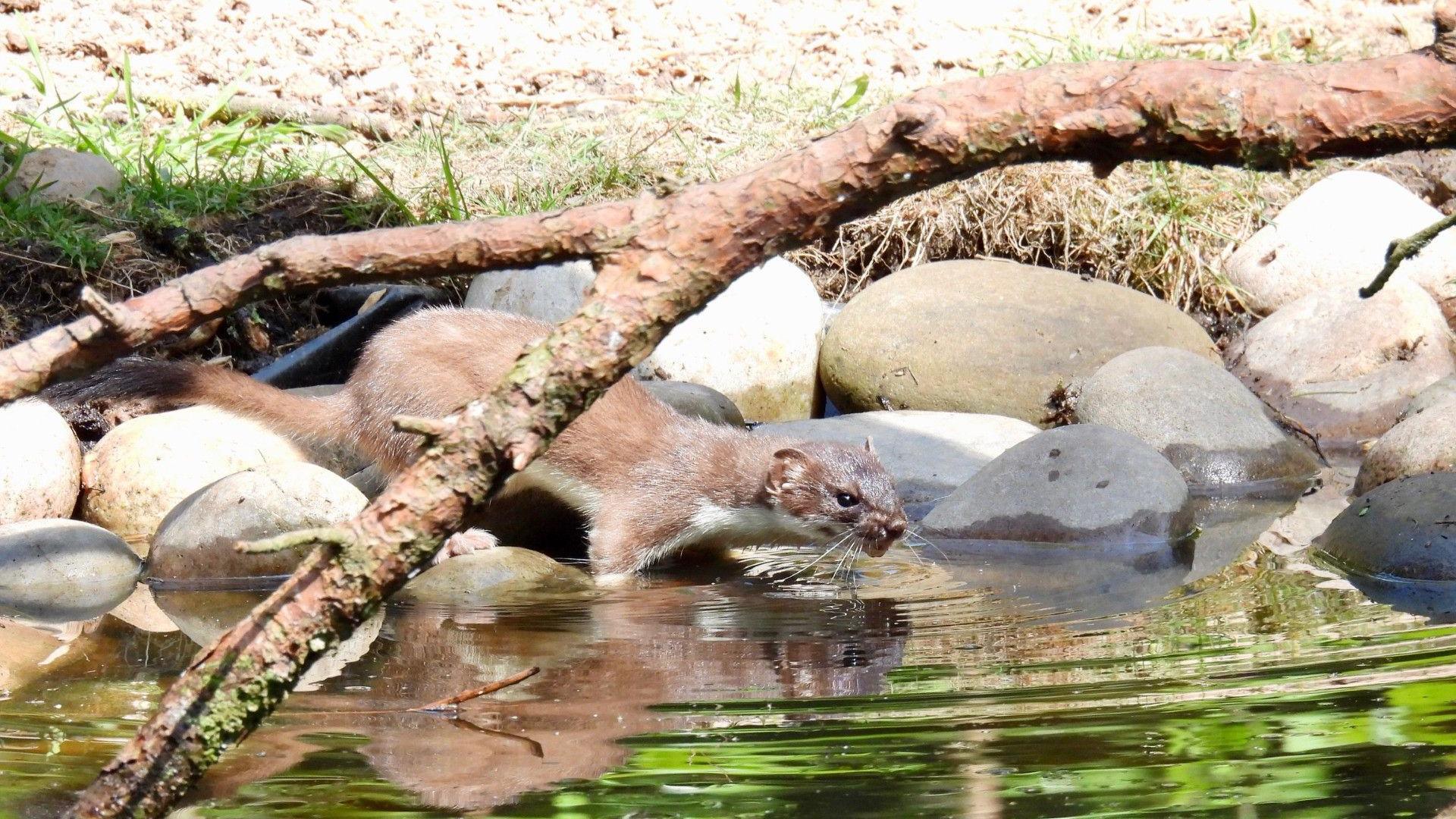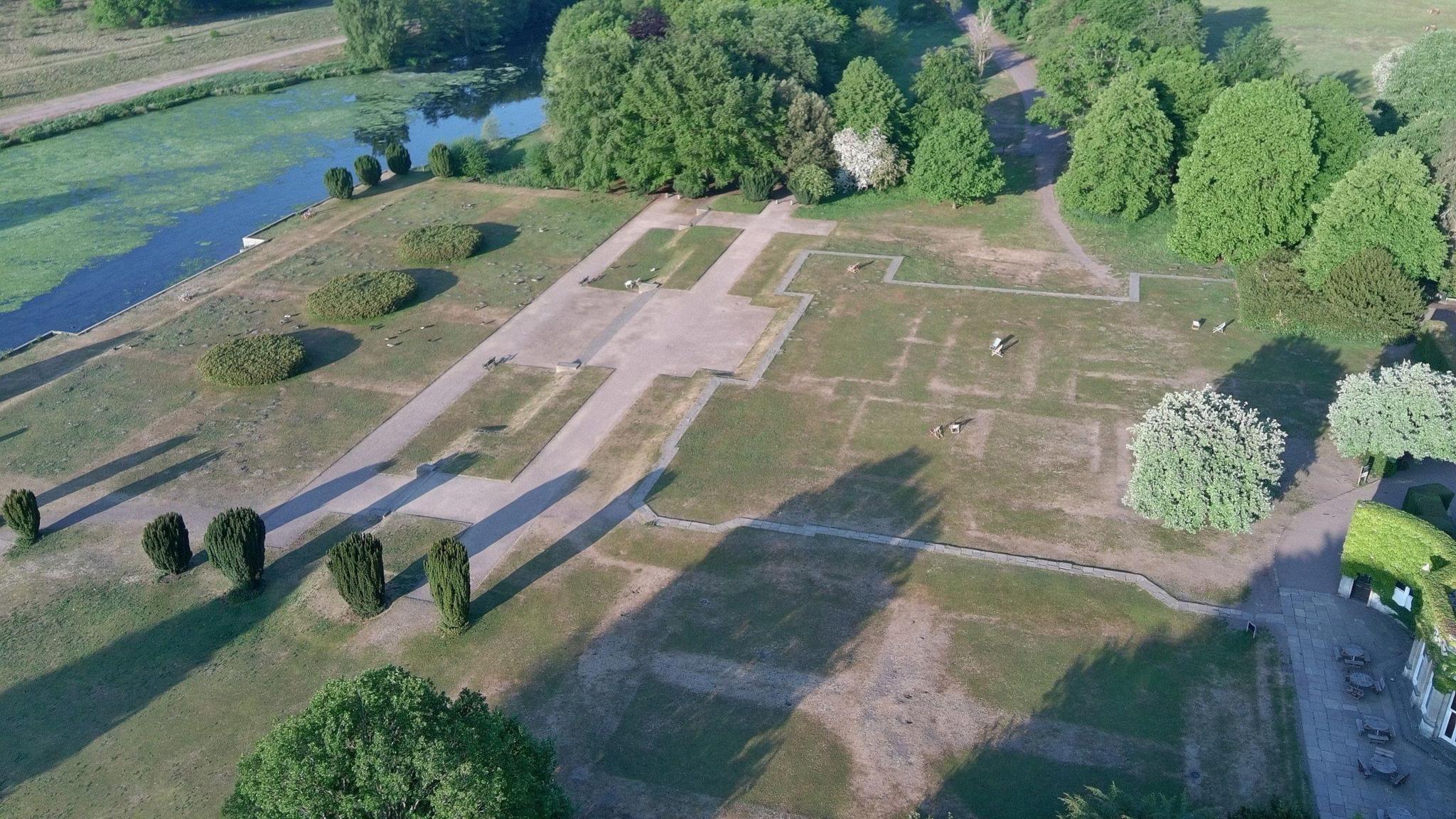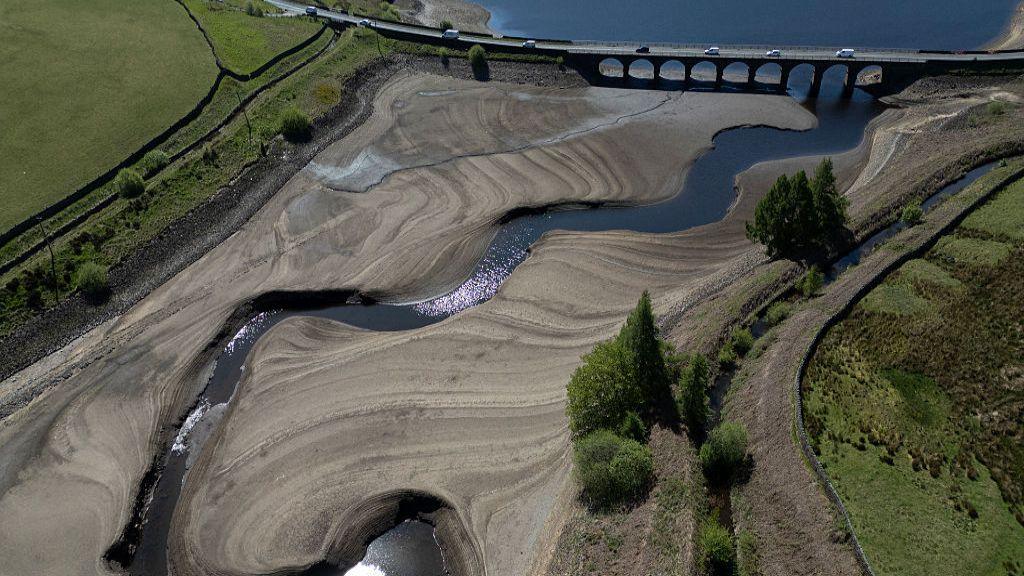House martins get helping hand after dry spring

The house martins have been affected by a dry spring in Nottinghamshire
- Published
Nesting birds in Nottinghamshire have been helped by National Trust rangers as the dry spring weather hampered their ability to make homes for the fledgling families.
House martins in Clumber Park near Worksop were among those affected, as the lack of muddy ground meant they had less material to use to build their nests.
It comes after a spring which the Met Office said was ranking as the UK's driest in over a century earlier this month.
The trust said rangers "came to the rescue" by creating areas of saturated soil to allow the birds to "have a successful nesting season".
Gareth Jones, countryside manager for Nottinghamshire for the National Trust, said the lack of rain presented an obstacle to house martins, which typically are around Clumber Park between March and October and make their nests on the ground under the eaves of homes and buildings.

Weasels and other animals have also been helped by the efforts to provide more water
"During the recent hot spell, water has been in short supply, so the rangers in the estate yard that we work from have been creating artificial pools of mud by filling potholes with water and bringing soil in, to create mud pies for birds to help them build their nests," he said.
"They need mud, and with climate change and everything like that we need to help them.
"There's mud still about, but they have to travel longer distances using stored energy, so in the time of using nests it's very energetic for them trying to find mud, so providing little bits of mud here and there just helps shorten the distances to travel."
Mr Jones said other animals had also benefited from the rangers' interventions, with stoats, weasels and other mammals as well as birds profiting from extra sources of mud and water.
He said members of the public can also assist any animals if they find them in and around their gardens.
"It's literally just as simple as creating some mud and keeping it there," he said.
"They may not come straight away, but as they build and maintain a nest through the summer you'll see them coming down to [sources of] mud, just to help repair the nest if it gets damaged.
"Every little helps."
Get in touch
Tell us which stories we should cover in Nottingham
Follow BBC Nottingham on Facebook, external, on X, external, or on Instagram, external. Send your story ideas to eastmidsnews@bbc.co.uk, external or via WhatsApp, external on 0808 100 2210.
Related topics
- Published23 May

